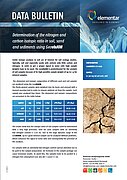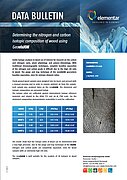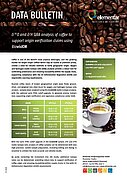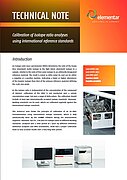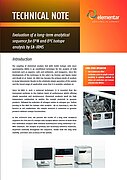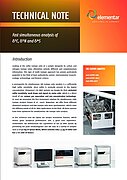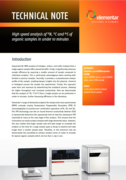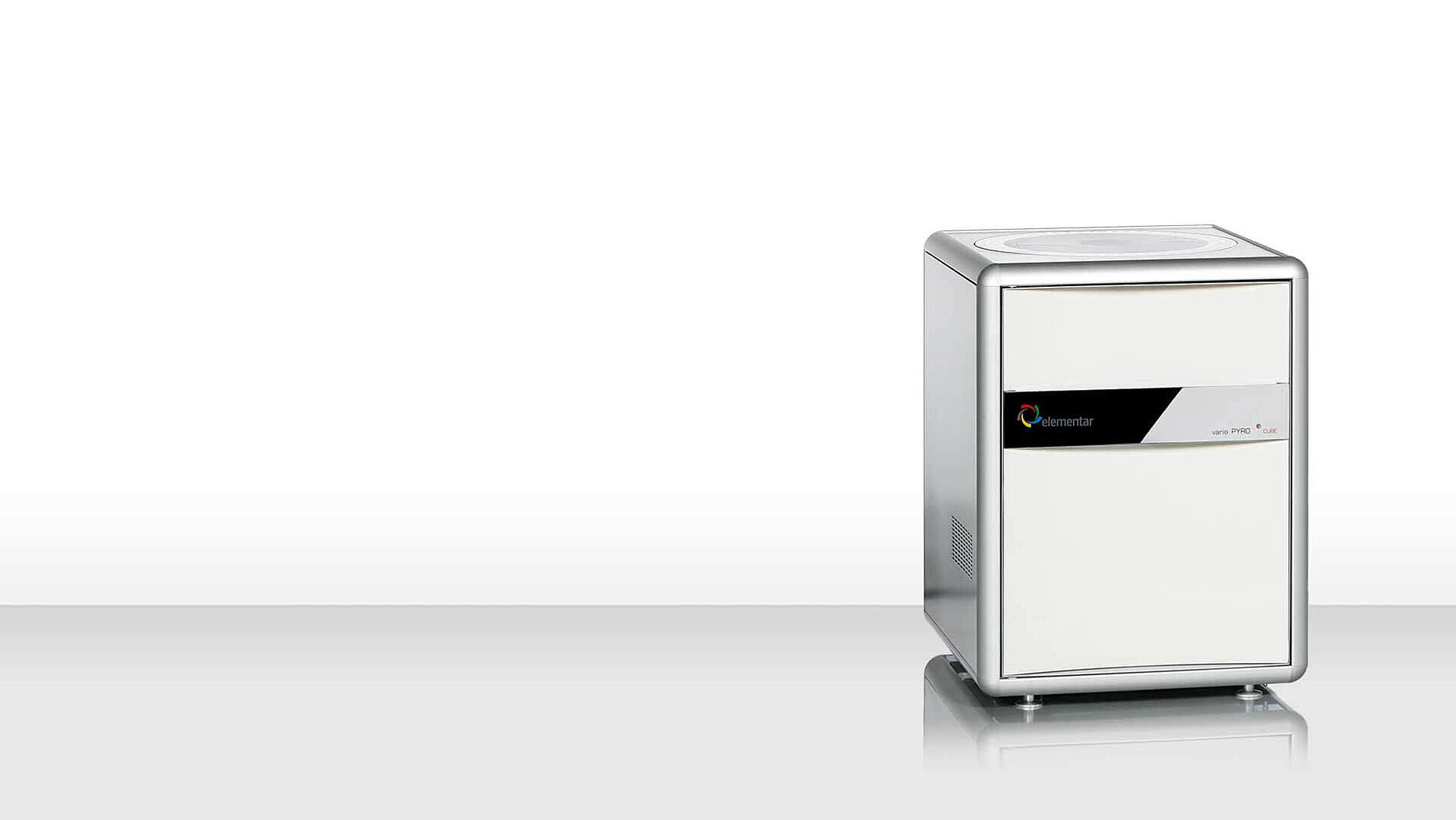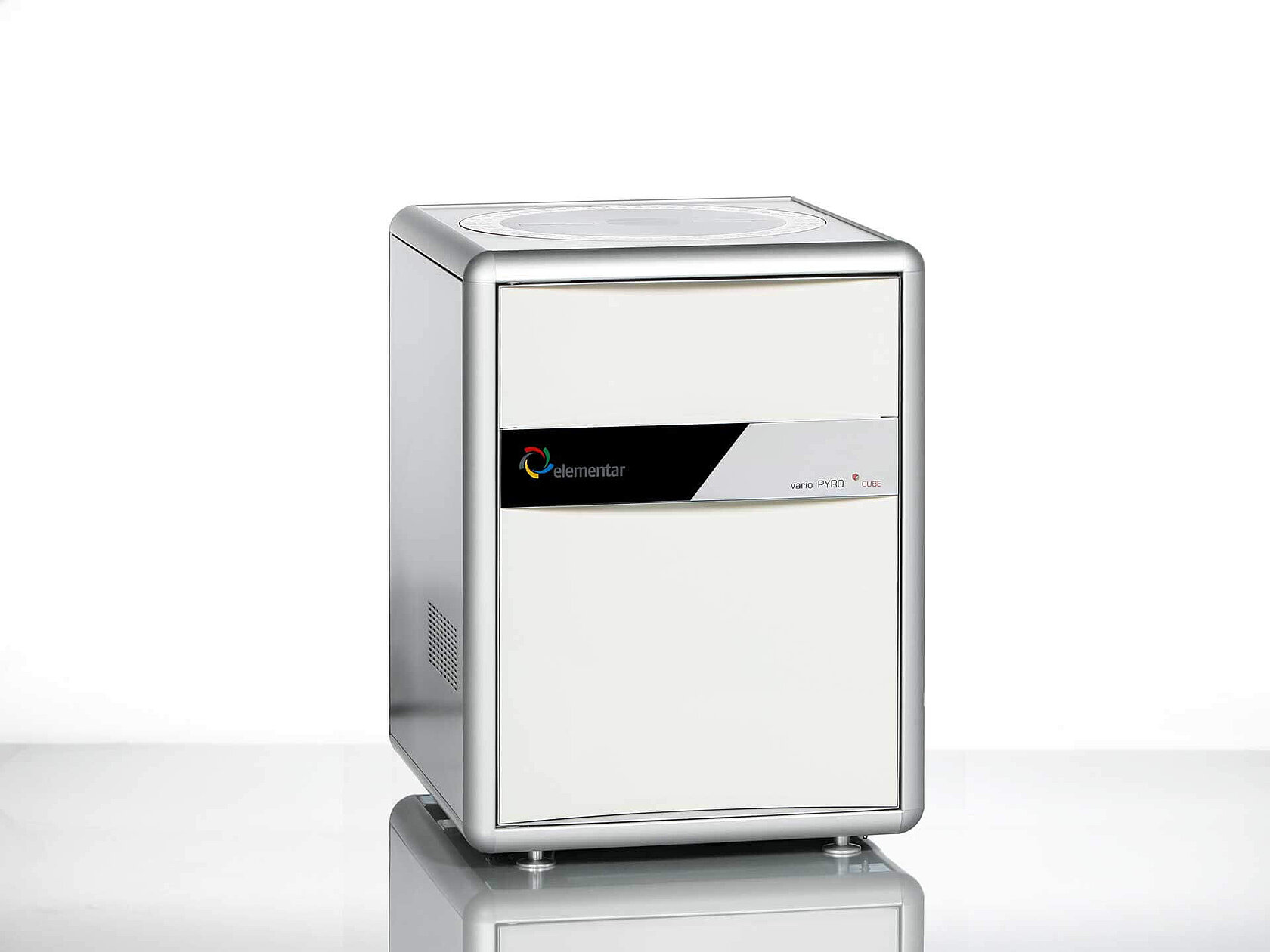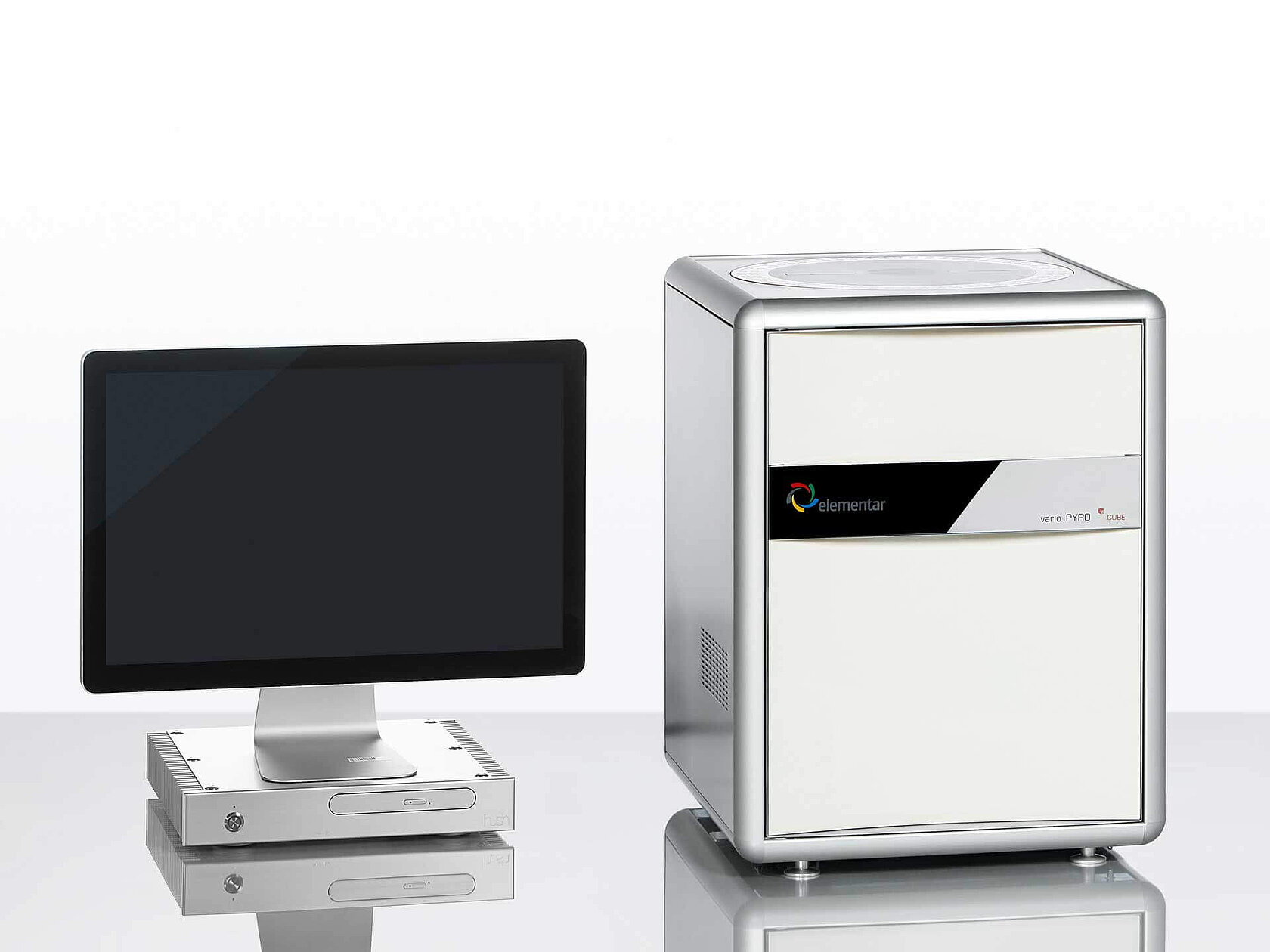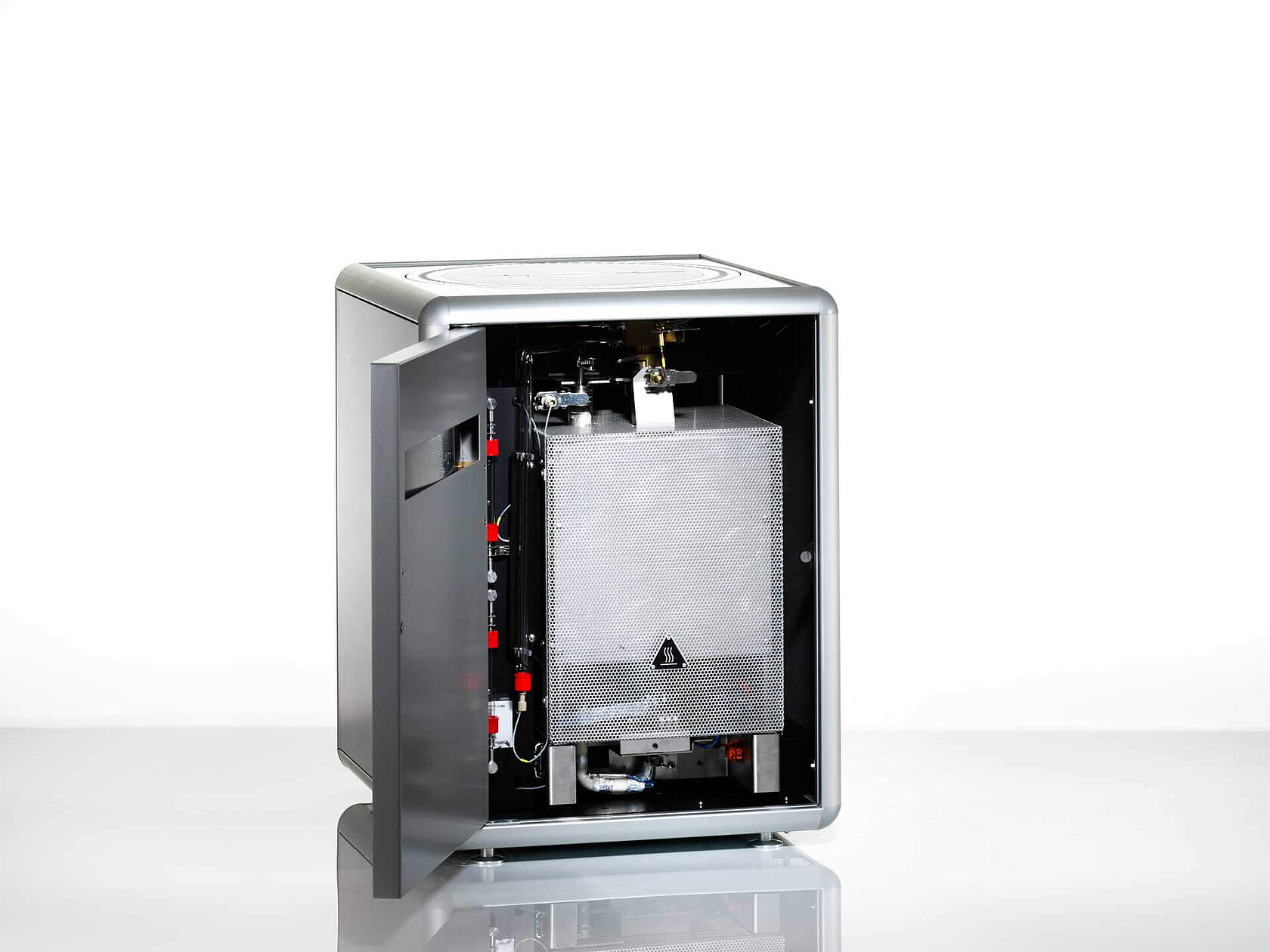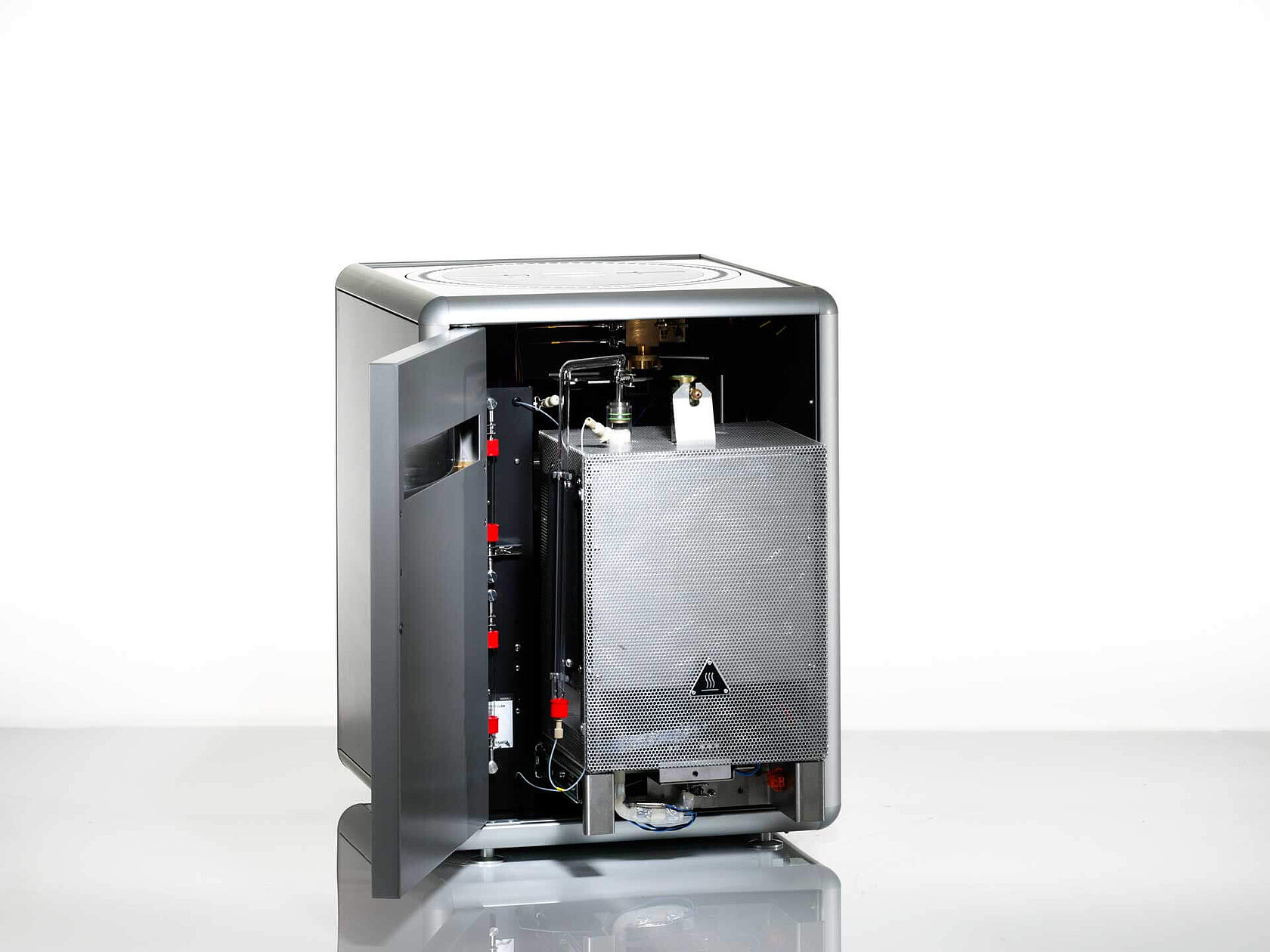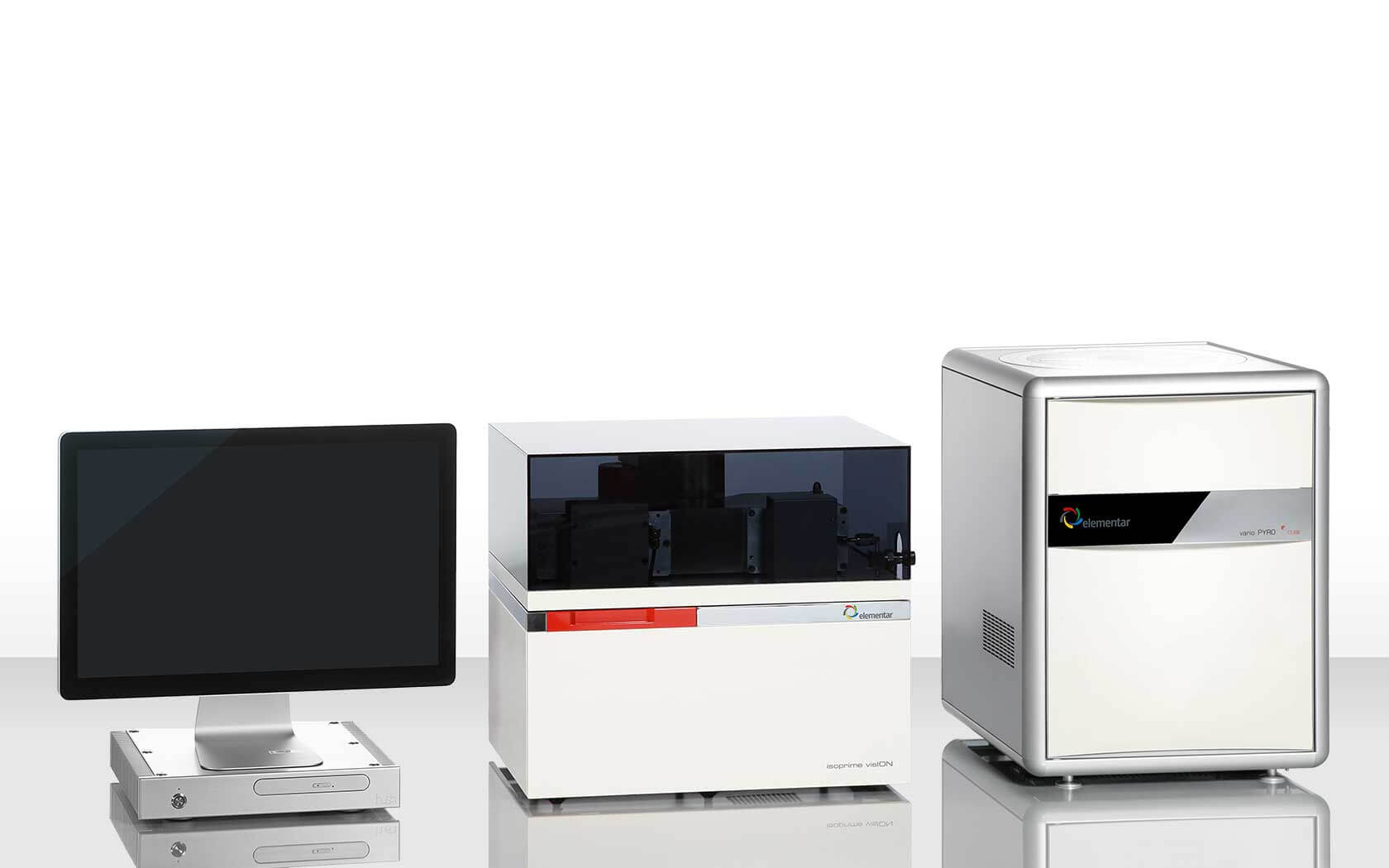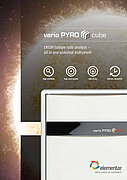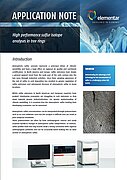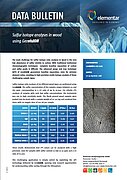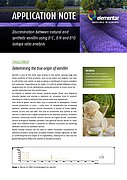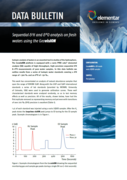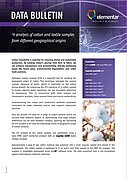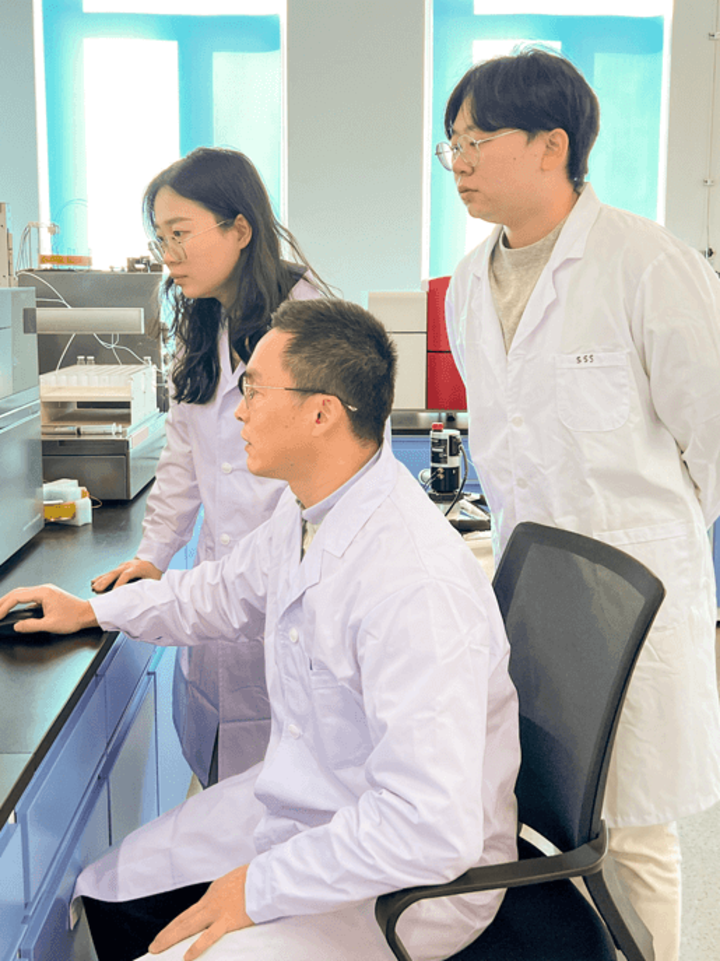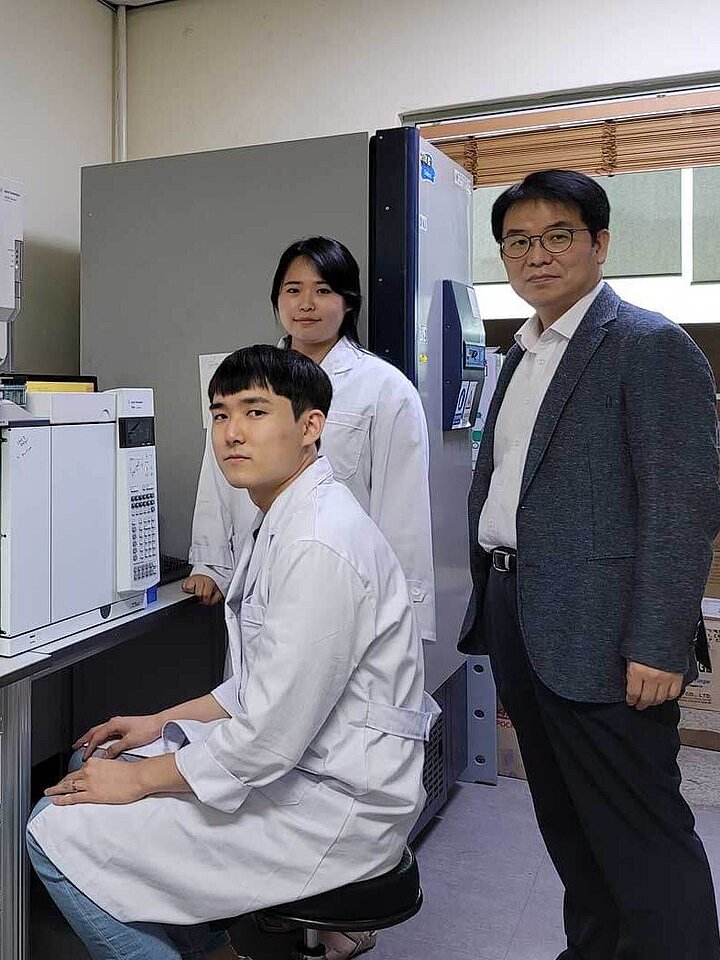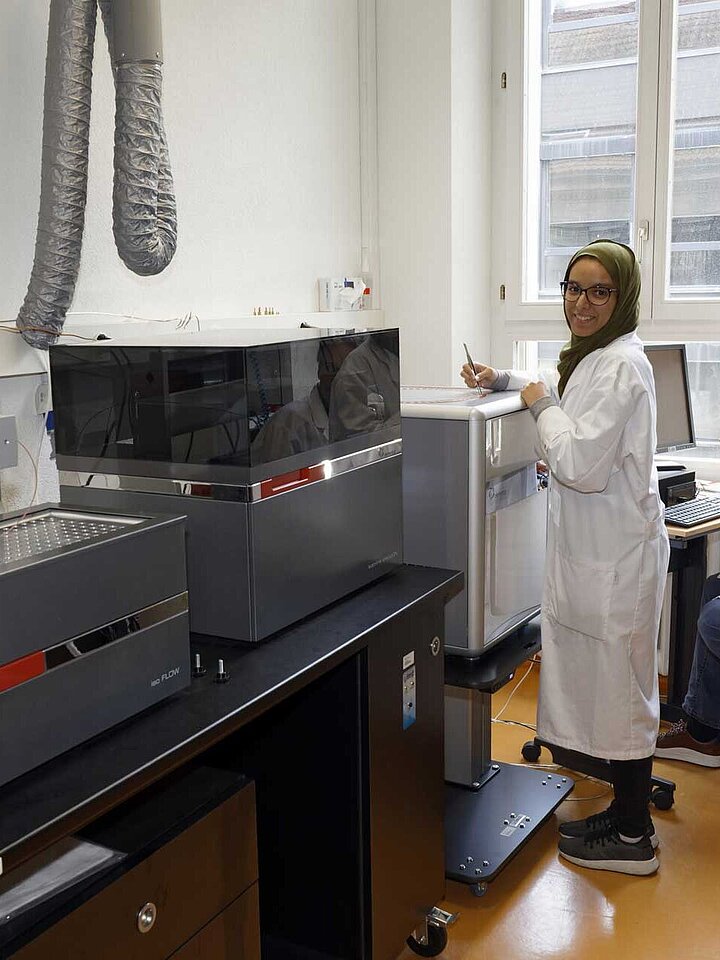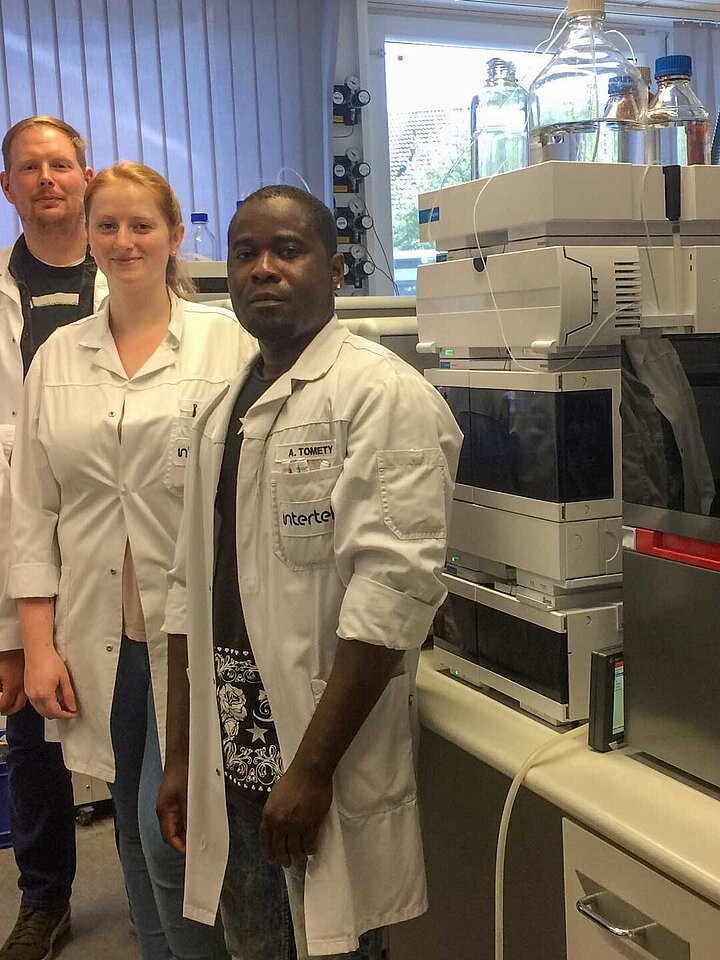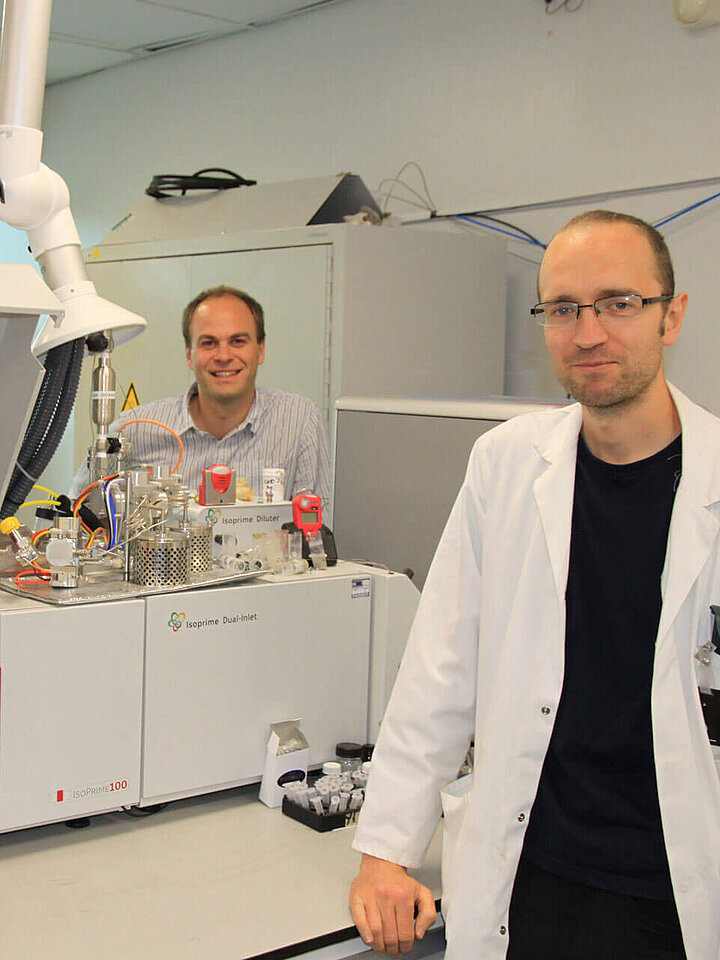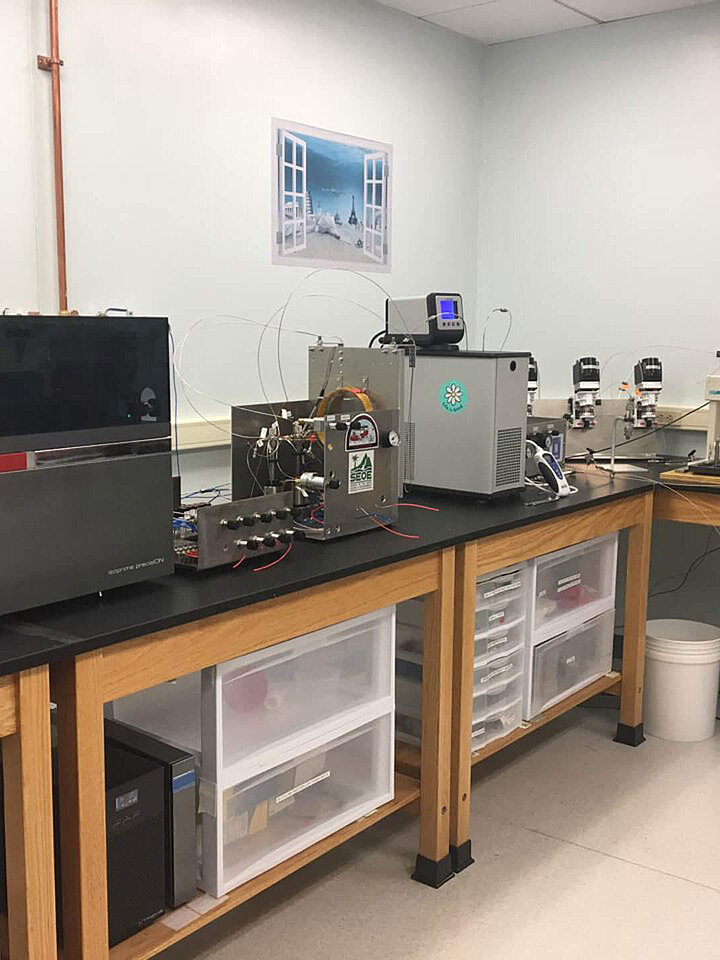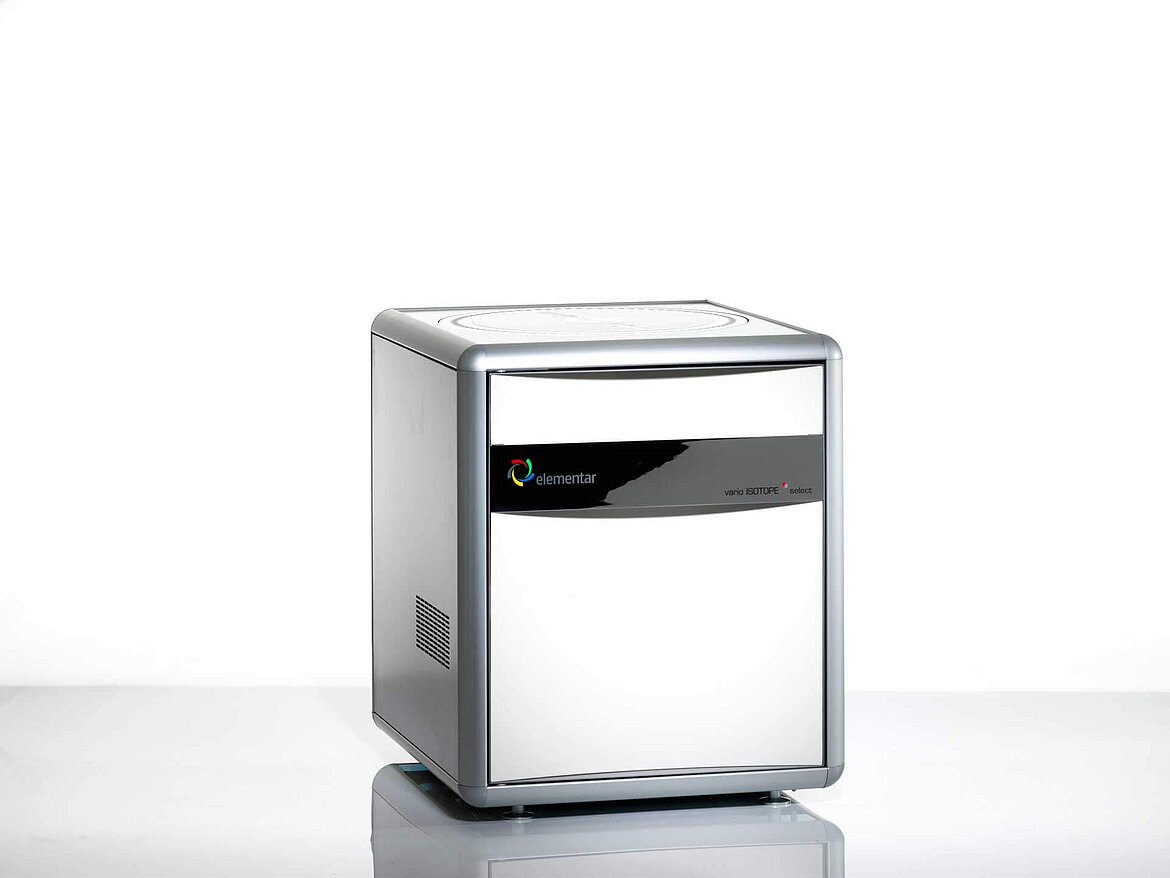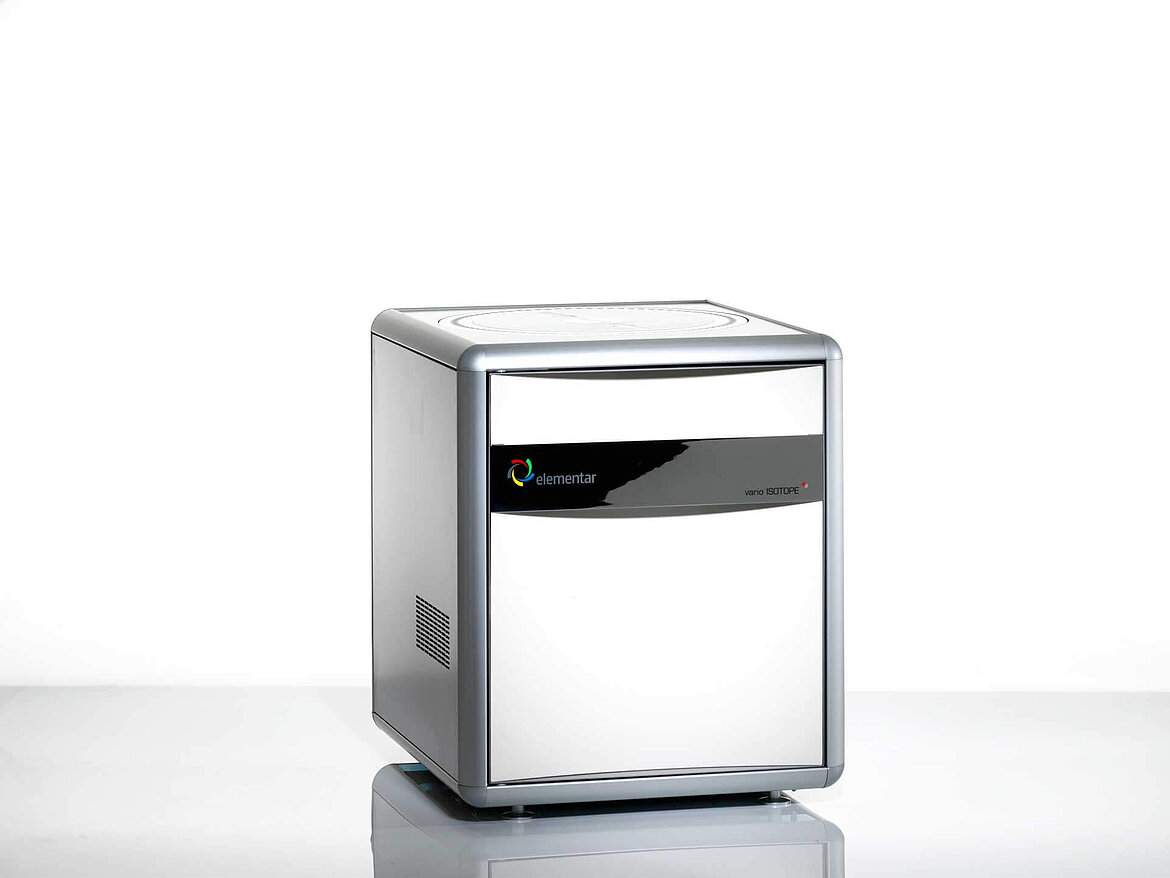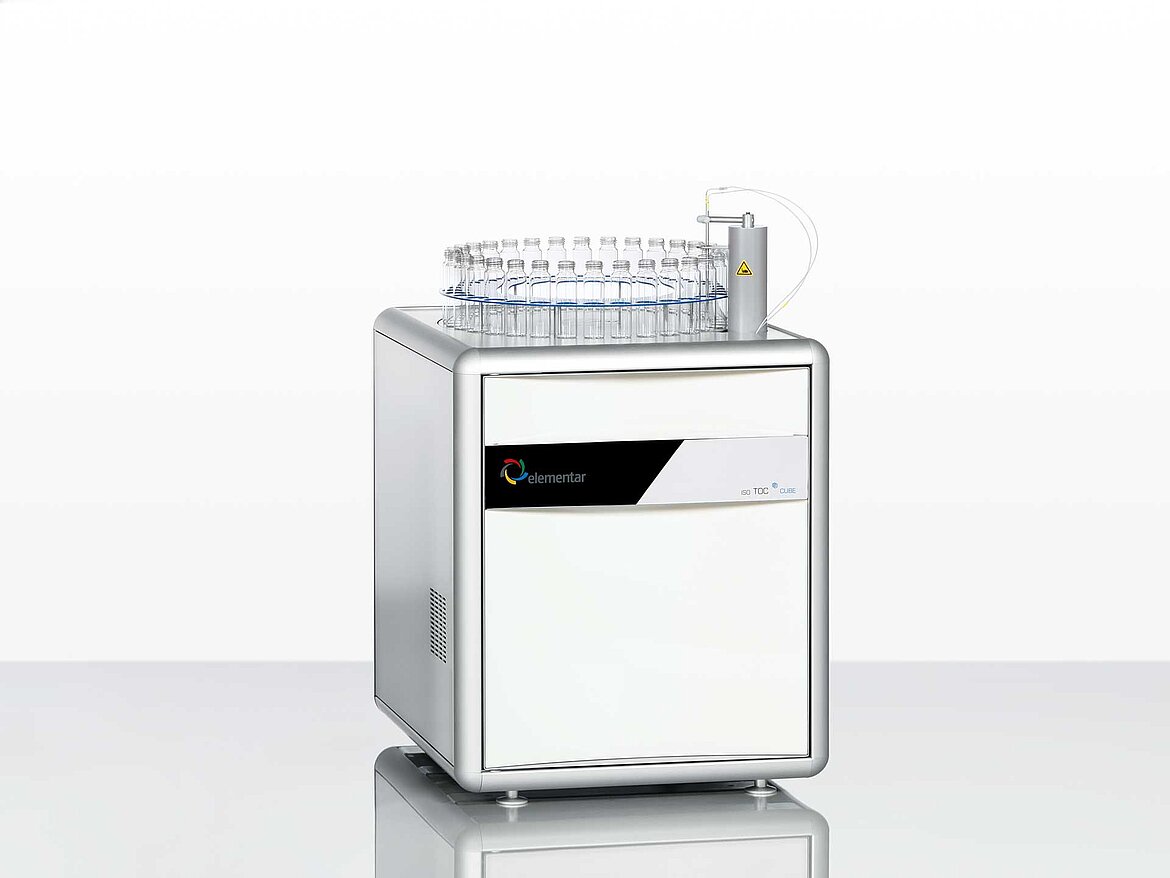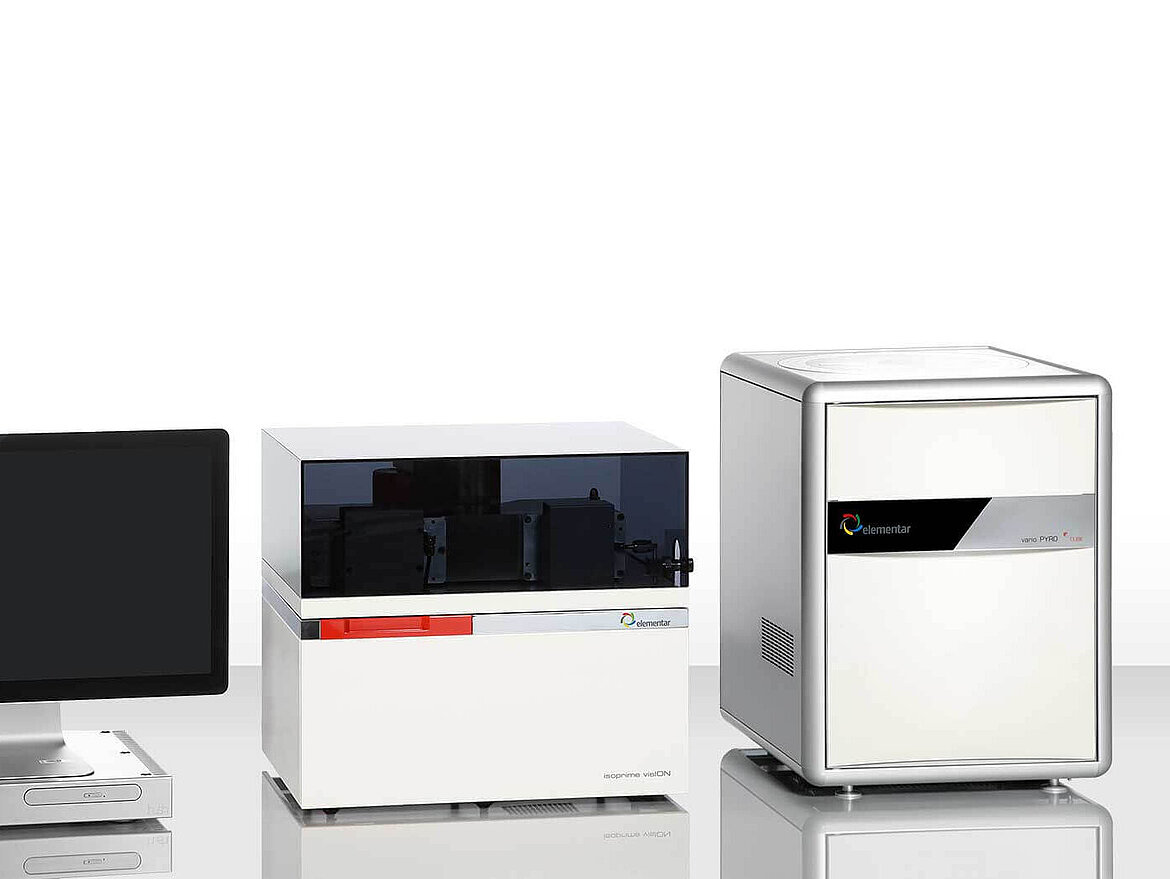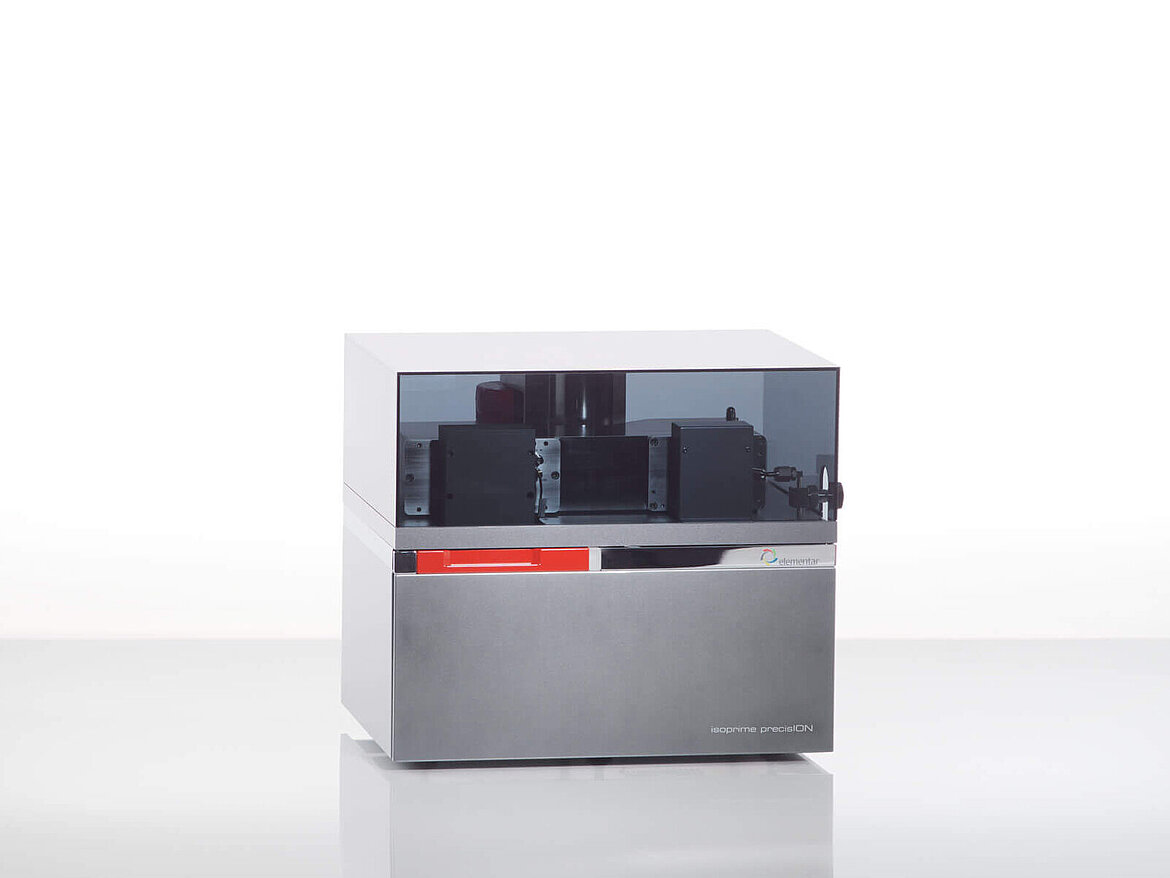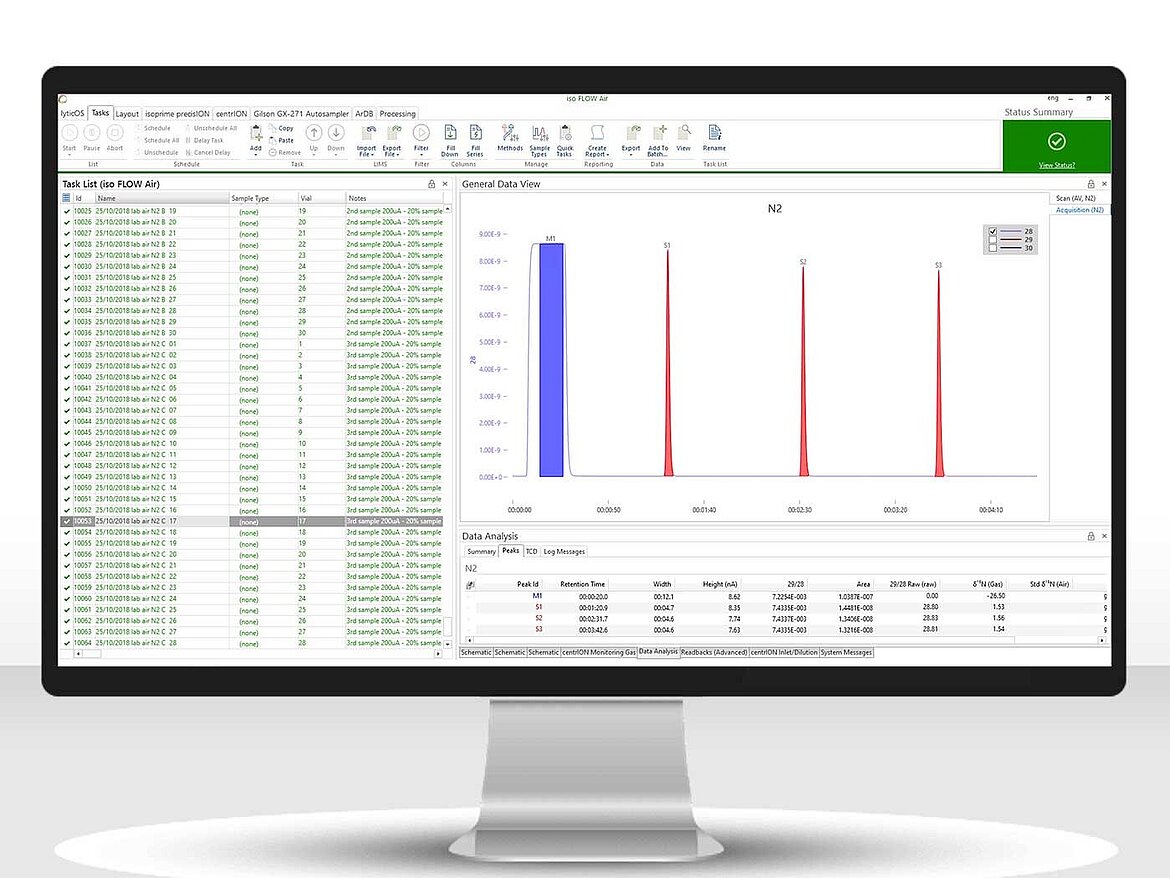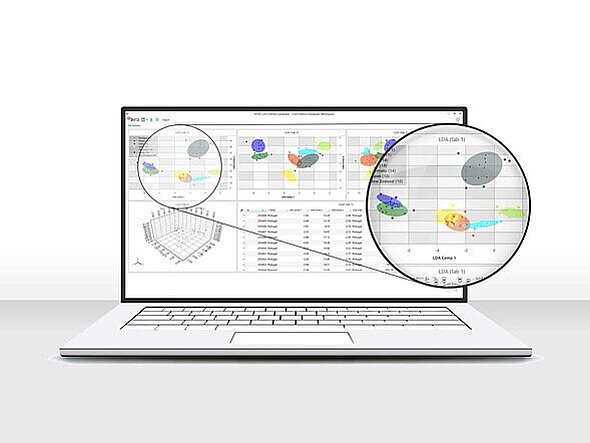CNSOH isotope ratio analysis – all in one universal instrument
Enjoy highest precision and accuracy in OH and CNS isotope ratio analysis with the vario PYRO cube. This elemental analyzer for isotope ratio analysis (EA-IRMS) perfectly adapts to your analytical demands, as it can be operated in OH mode (standard configuration) or in CNS mode (optionally available), offering CNSOH isotope ratio analysis all in one instrument. It delivers reliable results with outstanding precision and accuracy for samples with weights up to 1 g. Use the vario PYRO cube in combination with one of our state-of-the-art IRMS systems for best results, paired with unmatched ease of operation and great durability.
Highlights of the vario PYRO cube
Excellent peak shapes and separation with simultaneous NCS isotope analysis
even for analysis of very low sulfur contents in high carbon samples
Precise oxygen isotope analysis
thanks to unrivalled baseline separation of CO and N2 during δ18O analysis
Matrix-independent results
thanks to high-temperature pyrolysis at 1,500 °C
High operating comfort
thanks to a high level of automation and low maintenance
Features
Excellent peak shapes and separation thanks to Advanced Purge and Trap Technology
The vario PYRO cube elemental analyzer offers OH and CNS analysis with excellent peak shapes and full peak separation in just a few minutes. This is achieved thanks to our Advanced Purge and Trap (APT) technology for advanced gas separation and preconcentration, providing market-leading precision and accuracy in elemental analysis. The APT technology also accounts for unrivaled sulfur sensitivity, allowing the vario PYRO cube to reliably perform trace sulfur analysis. In addition, a large dynamic measurement range for the analysis of samples from the low microgram up to the gram range is due to the APT technology.
Precise oxygen isotope analysis thanks to full baseline separation
The precise analysis of δ18O in nitrogen-containing samples usually imposes challenges, since N2 isobarically interferes with CO2. To solve this problem, the vario PYRO cube uses a patented backflush system to remove any N2 interferences, resulting in complete baseline separation and superior CO peak focusing. As a result, reliable oxygen analysis is a given with the vario PYRO cube.
Matrix-independent results thanks to high-temperature pyrolysis
Oxygen isotope ratio analysis relies on the conversion of sample oxygen to carbon monoxide. To ensure a full conversion of sample oxygen to carbon monoxide, high furnace temperatures above 1,400 °C are required. The vario PYRO cube operates with high-temperature pyrolysis at temperatures of up to 1,500 °C with an extra-long furnace hot zone for guaranteed complete conversion and, as a result, matrix-independence.
High operating comfort through design
Equipped with a 120 (or optionally 240) position autosampler, which is reloadable at any time, vario PYRO cube is designed for unattended 24/7 analysis and high sample throughput. The separation of combustion and reduction tubes results in a longer lifetime of these tubes and fewer maintenance events, as does the big ash finger, ensuring highest system uptime. Whenever maintenance is necessary though, our user-friendly clamp connections ensure a tool-free experience, while the slide-out furnace guarantees easy accessibility and a comfortable working posture.
Future-proof thanks to 10 years guarantee
Thanks to the outstanding robustness and longevity of our vario PYRO cube, we grant a 10-year guarantee on the thermal conductivity detector cell of the thermal conductivity detector (TCD). With our long-term oriented dedication to technical support, we provide spare parts for a minimum of 10 years. This results in outstanding low total cost of ownership, giving you confidence in return of investment.
Product details
The vario PYRO cube is optimized for the analysis of:
- δ18O
- δ2H
- δ13C*
- δ15N*
- δ34S*
* optionally available
Weighing range
Largest weighing range:
from micro (20 µg) to macro (1 g soil) sample weight
Element concentration range
Largest dynamic range of element concentrations and ratios:
C*: up to 20 mg abs.
N*: up to 15 mg abs.
S*: up to 1.5 mg abs.
O: up to 6 mg abs.
H: up to 1 mg abs.
Precision
Elemental performance (external precision, 1σ):
< 0.1 % for C, N, S and O
Isotope ratio performance (external precision, 1σ):
δ13C*: 0.1 ‰
δ15N*: 0.15 ‰
δ34S*: 0.2 ‰
δ18O: 0.3 ‰
δ2H: 2 ‰
δ2H* (HDChrome): 0.5 ‰
Analysis time
H: ~ 5 min
OH/O: ~ 14 min - 15 min
CNS*: ~ 3 - 4 min per element
Self-optimizing according to element content and sample weight. Depending on sample type, analysis mode, and configuration.
* optionally available
High temperature pyrolysis (OH/H/O isotope analysis):
Oxygen is converted to CO and hydrogen to H2 via reductive pyrolysis at up to 1,500 °C. While CO is trapped and preconcentrated on a column, H2 travels directly to the mass spectrometer. Only when the H2 peak has resolved to baseline, CO is swept off the column with clean helium, while undesired byproduct gases are vented out of the system. This gurantees complete separation of the target analyte CO from undesirable gases prior to transfer into the mass spectrometer.
High-temperature combustion unit & Purge and trap chromatography (CNS isotope analysis*):
Complete sample digestion at up to 1,200 °C (or 1,800 °C at the point of combustion when tin foil is used). A jet injection of oxygen directly to the sample leads to the highest oxygen concentrations at the point of combustion, as well as low gas consumption. This gurantees 100 % recovery even for samples, that are traditionally hard to combust. Separation of gaseous components on two gas-selective columns. These columns trap the gases until they are heated up. The release of a gas is only initiated, when the prior gas peak has reached baseline. This results in perfect peak separation without overlap, and automatic optimization of the analysis time.
Detector
Thermal Conductivity Detector (TCD)
Sample introduction
- Integrated 60*, 80, 120, or 240* positions autosampler (for solids and liquids in capsules) with radiant heating*, reloadable during analysis
- Integrated 2 ml vial, 50 positions liquid autosampler with rinse and waste vial*, reloadable during analysis
Maximum furnace temperature
Furnace 1 (OH): 1,500 °C
Furnace 2 (CNS): 1,200 ° C (whereby 1,800 °C is briefly reached at the combustion point when using tin foil)
Instrument control
Windows® based lyticOS® Software Suite with LIMS integration and auto sleep and wake-up function for automated and unattended overnight operation.
Required gases
Helium (OH and CNS*),
oxygen (CNS*)
Dimensions
48 x 55 x 63 cm (W x D x H)
* optionally available
Electronic balance:
Balance and elemental analyzer form a system. We offer analytical balances from the leading manufacturers with our instruments. Please contact us for further information.
Sample former and pressing tools:
For simplified sample preparation, we offer a manual tool for compressing samples in tin foil or cups, and a mechanical press for the preparation of pellets with paper wrapping.
Capsule sealing press:
Tool for the exact dosing and gas-tight sealing of tin or silver capsules, for liquid and sensitive samples.
Downloads
